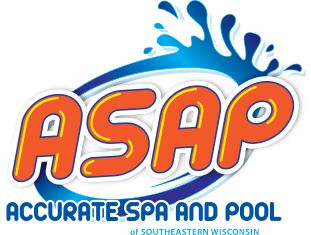Having a pool in Wisconsin is a true luxury, especially given the state’s long winters and short swimming season. But with that luxury comes the challenge of keeping energy bills under control while enjoying crystal-clear water. Efficiency isn’t just about saving money—it’s also about getting the most out of your pool investment while being mindful of our environment. Here’s a straightforward look at how Wisconsin homeowners can boost their pool’s energy efficiency, from equipment upgrades to smart maintenance.
Understanding Pool Energy Loss in Wisconsin Homes
Many folks are surprised to learn just how much energy a pool can use, especially in Wisconsin’s climate. The biggest culprit is heat loss. With cool nights, even in summer, and chilly winds for a good chunk of the year, pools constantly lose warmth. This means heaters have to work overtime, driving up your energy bills fast.
Evaporation is another major source of energy loss. When water evaporates, it takes heat with it—so every bit that steams off your pool means more energy needed to bring the temperature back up. Even when the pool isn’t in use, this process keeps zapping your system’s efficiency. Understanding these basics helps set the stage for smarter solutions.
Upgrading Pool Equipment for Maximum Efficiency
Old pool pumps, filters, and heaters are often energy hogs. Swapping out a single-speed pump for a variable-speed model can cut your energy use by up to 70%. Variable-speed pumps let you adjust flow rates, so you don’t need to run them at full blast all day. In my experience, most Wisconsin pools run just fine at lower speeds, saving serious cash over the season.
Filters matter too. If you’re using an old sand filter, consider upgrading to a cartridge filter. These work more efficiently and don’t require backwashing as often—meaning you save on both water and energy. When it comes to heaters, modern high-efficiency gas heaters or heat pumps are far more effective than older models. Heat pumps, in particular, work well during Wisconsin’s mild summer months, though gas heaters are still preferred for rapid heating in the shoulder seasons.
Optimizing Pool Heating and Insulation Methods
If you heat your pool, a pool cover is hands-down one of the best tools for preventing heat loss. A simple solar cover can reduce evaporation by up to 95% and hold in precious warmth overnight. For our climate, investing in a quality, well-fitting cover is a no-brainer. Automatic covers add convenience, but even a basic manual cover gets the job done.
Consider placing windbreaks like fencing or landscaping around your pool. Wind steals heat from your pool surface quickly, so creating a sheltered spot can make a bigger difference than you might expect. For in-ground pools, insulating the pool walls and plumbing during installation (or renovation) can also cut down on heat loss, though this is harder to retrofit.
Implementing Smart Maintenance for Energy Savings
Keeping your pool clean and balanced isn’t just about appearance—it’s key for energy efficiency. A dirty filter or clogged skimmer makes pumps work harder and less efficiently. Set a regular schedule for cleaning both, and check that water chemistry stays within recommended ranges. Balanced water is easier to heat and won’t corrode equipment, which extends its lifespan.
Don’t forget to adjust the timer on your pool pump. Many people run pumps much longer than necessary, especially once the water is balanced and clear. In most Wisconsin pools, 6–8 hours a day is usually enough during the season. Consider running the pump during off-peak hours if your energy provider offers lower rates at night. These small tweaks add up over the course of a summer.
Boosting your pool’s energy efficiency in Wisconsin isn’t about big, expensive overhauls—it’s about a series of sensible steps that fit your pool and lifestyle. Start with the changes that make sense for your situation, and you’ll notice the difference in comfort and operating costs. If you ever have questions or want tailored advice, your local pool professionals are always here to help.
